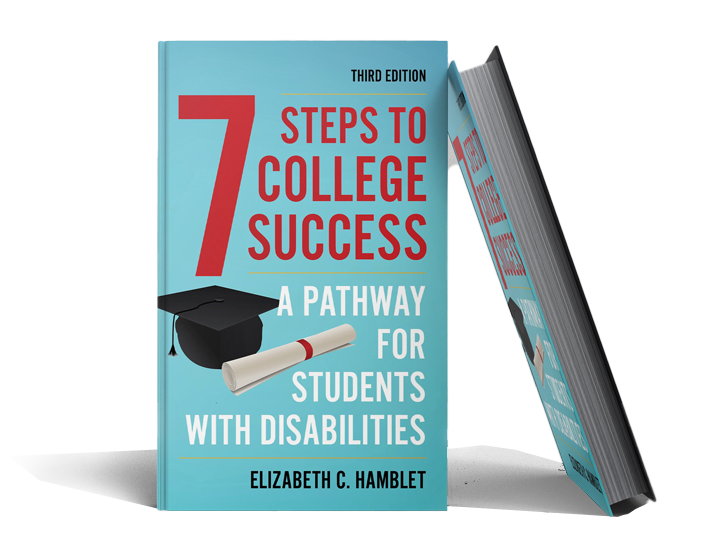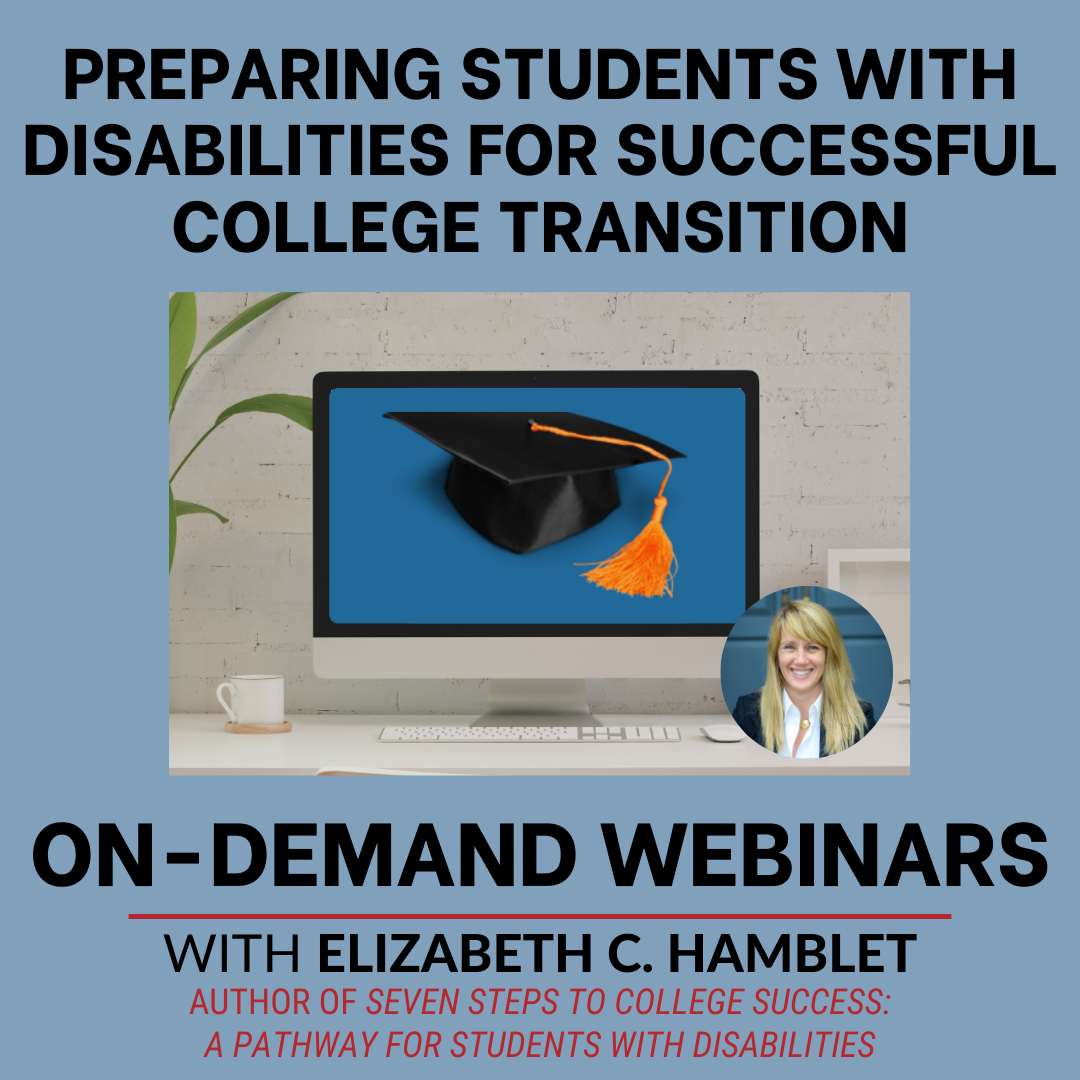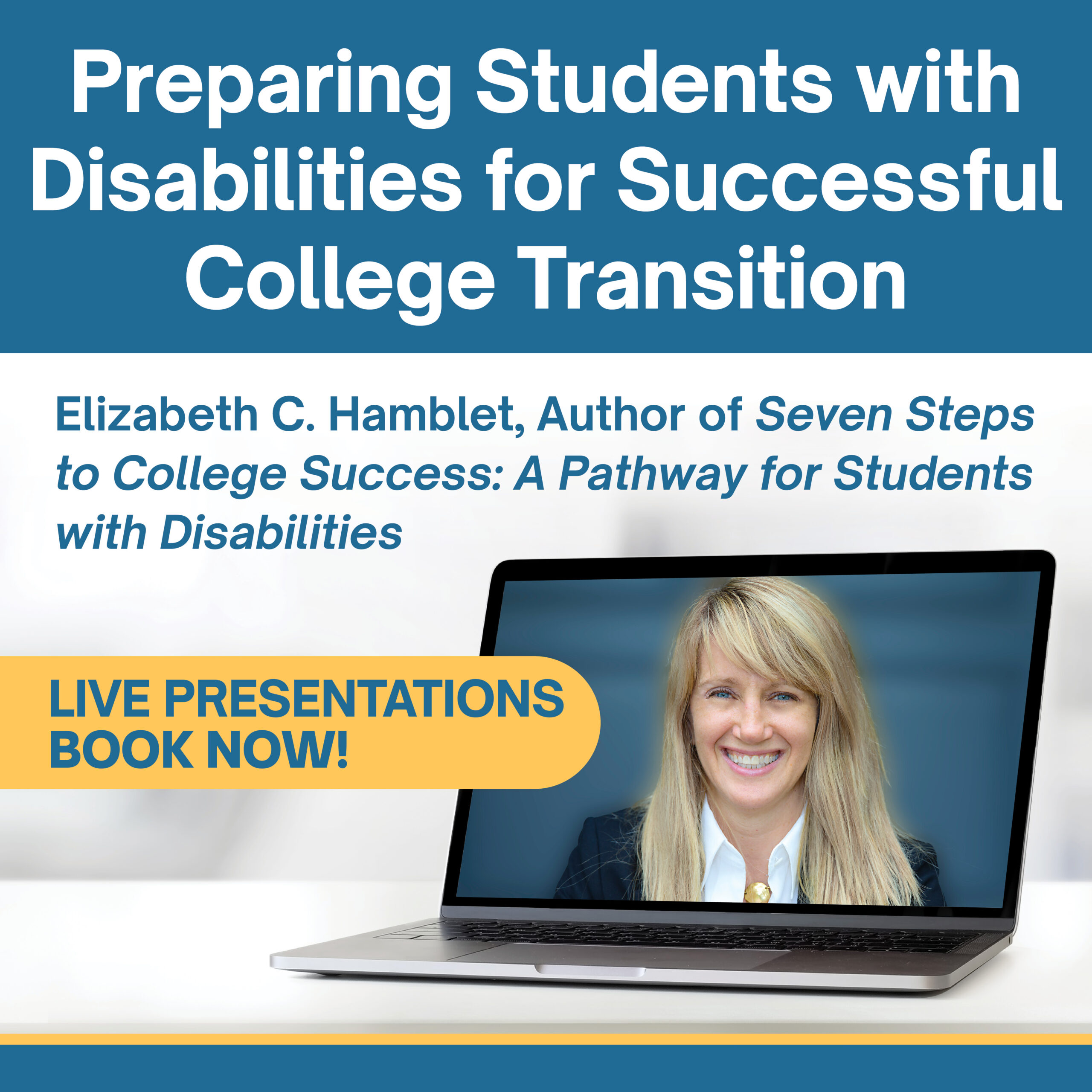Introduction
By the time their child is nearing the end of high school, many parents of students with disabilities have spent years being very involved in their child’s education, advocating for their needs and supporting them at home. As students move through high school, however, students who want to move on to the college environment need to develop a level of independence and self-advocacy in order to be prepared. For some parents, this may mean shifting their approach.
When I was developing my book, I asked college disability services directors how can parents could best help their student to prepare for successful transition to college. In this bonus content not included in the book, they provided advice.
Paul Harwell is Associate Director of ADA and 504 Compliance at Dartmouth College
I know you’ve been the one in charge. Ask your student to speak for themselves in their IEP meetings so they can practice. This will help them develop the language they’ll need when they come to talk to us.
And they may be hesitant if their version of the story conflicts with yours. Work that out before they come to college or in our meetings. If you two disagree, then we are going to take the student’s request and perspective with greater weight because it is their education.
Let them lead. It doesn’t mean you can’t be involved.
Doris Pierce is Director for the Office of Accessibility Resources and Services at the University of Central Arkansas
Have them come to their IEP or 504 meetings so they can hear what teachers saying about them and model how you talk to teachers.
Start your kids ordering take-out, setting doctor’s appointments, etc. That will help them to understand level of responsibility they’ll need to be at once they’re seniors and transition to higher education.
Make sure they understand the impact of their disability – that they have one, and how it affects them. Have them start talk about their academic experiences and how their disability impact that.
What happens when they take a test? Talk to them about their accommodations and continuing to use those, because if they use them in high school, it’s more likely they’ll use them in college.
Start practicing being the “cheerleader” instead of the main person who’s responsible. When you do, your student will be more okay with telling you, “I had a bad day today.” If they’re struggling, refer them back to professors and to our office.
Marvin Williams is Director of Disability Resource Services at CSU Stanislaus
Make sure your student feels comfortable speaking for themself. Self-advocacy is greatest gift. Remember – getting them comfortable with discussing their disability and how it affects them isn’t just important for our processes at college. If they need accommodations at work eventually, they’ll be talking with their boss about it. The sooner they start practicing, the better.
I know that often, parents/guardians are really good historians, and they have the ability to provide a lot of background information. But when I do intake appointments, I prefer to get the answer from the student, and then ask the parent/guardian to chime in.
To use the metaphor of an ice cream sundae – I don’t want parents to provide the ice cream and for students to provide the sprinkles. Students should provide the ice cream and the chocolate sauce, and parents/guardians provide the whipped cream and cherry
Catherine Getchell is Director of Disability Resources at Carnegie Mellon University
Your role changes from advocating for the student to supporting the student as they advocate for themselves. Your student may find this transition challenging, and so may you. So start early, like in the last two years of high school at the latest, by having the student take more and more responsibility in managing their accommodations, working with their teachers and other school personnel.
Remember, too, that your student may not do things the way the you would have wanted them to. Making mistakes, even big ones, is part of the learning process, and you can best support their students by encouraging and supporting them while giving your adult student the space to do things differently or make a mistake.
Stacey Reycraft is Director of Student Disability Services at the University of Mississippi
I am the parent of a now-adult with a disability who had special education services in high school and then transitioned to college. I have a very personal experience being that parent who has to send their disabled child off to college. Our default emotion is anxiety and fear for our child who is not moving into adulthood.
We’ve always been in charge. We’ve always had to fight. One day they’re living at home, the next, they’re living away from home. That sense of anxiety and worry is hard physically and mentally on the parent, and on the student.
We can try to intervene where we shouldn’t. This is not an easy thing, but parents have an urge to step in when something is going wrong. (It’s true for parents of all college students, but it’s more so for those of us who have a student with a disability.) Our goal is to make sure they’re happy.
My advice to parents is – don’t do that. They have to learn how to do this on their own. They have to learn to navigate the challenges. They have to learn to talk to the students., to reach out to DS, to use their accommodations, to get along socially.
It’s hard to step back and watch your son or daughter fail a class because they didn’t know how to do their homework or because they’re not comfortable talking to their instructor about accommodations or because they’re choosing not to use accommodations because they feel embarrassed.
But we do them a disservice if we prevent them from learning those lessons. There is a lot of growth that comes with failures.
Margaret Camp is at Director of Student Accessibility Services at Clemson University
It’s helpful to become educated about the accommodations and what college expectations are. Compare that with what is being provided them in high school and knowing what might not be available in college. Your student might need to be thinking about how they’ll do with a different level of support.
I recommend approaching our offices as an advocate and partner (ex. say “I’m having a hardtime with this. I’m hoping you can help me”) rather than coming with threats of legal representation. If someone says, “I’ve retained a lawyer,” at that point we turn the matter over to our legal counsel, and we have to cease communication. The university counsel’s office is extremely busy and it’s likely going to be a couple of weeks before they can even address it. During that time, we can’t support your student because we can’t communicate with them.




